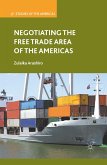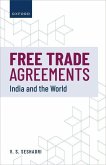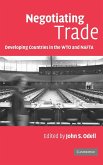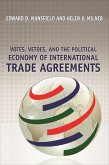How do international negotiations affect domestic politics? Starting in the 1990s, countries throughout Latin America embarked in multiple and simultaneous negotiations. On the shifting ground of widening and deepening trade agendas and diversifying arenas, what factors determined trade politics? Informed by interviews with public officials, business and civil society, this book examines the domestic political dynamics triggered by South-South, North-South and multilateral agendas in Argentina and Chile between 1990 and 2005. Bringing a much-needed cross-negotiation and cross-country comparative perspectives, and through detailed empirical analyses of several key negotiations, it proposes an explanation that emphasizes the interplay between international negotiations and domestic trade politics, taken as the result of the complex and dynamic interdependencies and interrelations between state and society.
Hinweis: Dieser Artikel kann nur an eine deutsche Lieferadresse ausgeliefert werden.
Hinweis: Dieser Artikel kann nur an eine deutsche Lieferadresse ausgeliefert werden.








